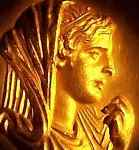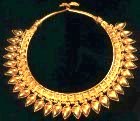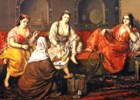Queen Vashti married a fool
The story of Vashti has 3 parts: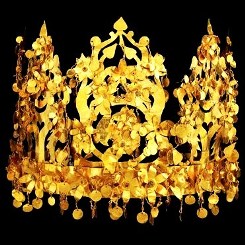
- The king’s great banquet. Ahasuerus, king of Persia, holds a royal banquet to honor the powerful men of his vast empire and display his enormous wealth.
- Vashti disobeys her drunken husband. Towards the end of the banquet when he is drunk, the king orders his wife to appear before his guests, to show off her beauty. She refuses to appear before the king’s guests, who are also drunk.
- The plot to disgrace her. Egged on by his advisers, Ahasuerus decides to make an example of her by banishing her from his court. He then issues a hollow decree ordering all wives to obey all husbands. This compounds the fact that he is a fool.
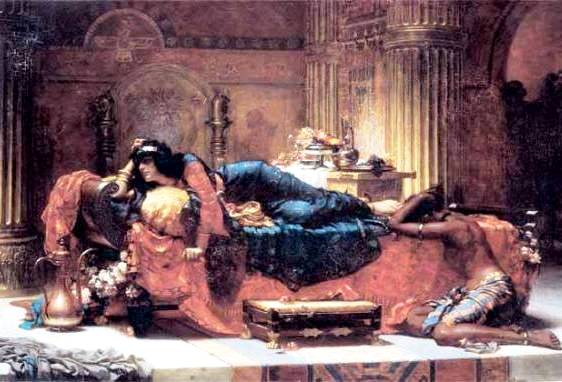
Vashti deposed, Ernest Normand
The king’s great banquet
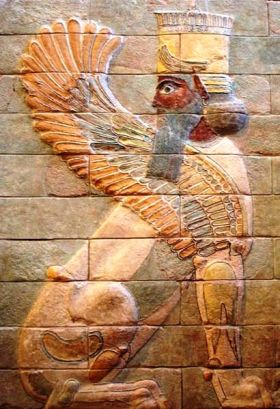
This story is supposed to have taken place in the city of Susa. At right is a winged sphinx from the palace of Darius the Great in Susa.
To be considered for the position of queen, Vashti (circa 475 B.C.) must have been a member of one of the powerful and aristocratic families in the Persian empire.
She was probably designated from birth as being a suitable wife for the emperor Ahasuerus, so she grew up very sure of her own status and was trained as a possible future queen.
But what sort of life would she have?
It may sound glamorous, but the harem of an ancient Middle Eastern king was a dangerous place to live. There were hundreds of other wives, all hungry for power and the king’s favour.
What is more, Ahasuerus’ court seems to have been riven by power struggles, and it was one of those that led to her disgrace.
At some stage in his reign Ahasuerus held a great banquet for his princes and nobles, to show off his power.
This was no ordinary banquet – more like a long-running exhibition and celebration of the empire’s wealth. It lasted six months, and its extraordinary extravagance was meant to showcase Ahasuerus’ empire and his vast wealth.
At the end of it, Ahasuerus held a prolonged dinner party for his chief advisers and courtiers. It went on for seven days and nights.
Vashti disobeys her drunken husband
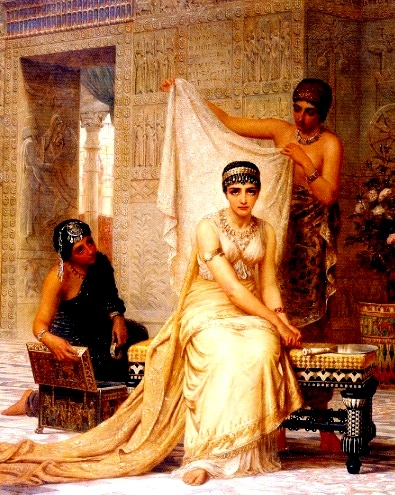 As was the custom, the wives dined separately, with Vashti as their hostess.
As was the custom, the wives dined separately, with Vashti as their hostess.
This was how things were done at the time. It allowed the men licence to get drunk and do as they pleased, without the wives having to witness the foolishness of their husbands.
On the last day of the banquet, when the men were well and truly drunk, Ahasuerus and some of his princes were bragging about whose wife was the more beautiful.
It seems harmless enough, but when you look at it in the context of a royal court, it becomes sinister. It could well have been a trap devised by Ahasueris’ wily courtiers to show
- how lacking in judgement their king was
- and how inept he was, even in controlling his own wife.
There are seven named: Carshe’na, Shethar, Adma’tha, Tarshish, Meres, Marse’na, and Memu’can, the seven princes of Persia and Media.
If it was a trap, the drunken Ahasuers fell straight in. He ordered his chief eunuchs to carry out a bizarre command: to bring Queen Vashti to stand before his courtiers and show off her exceptional beauty.
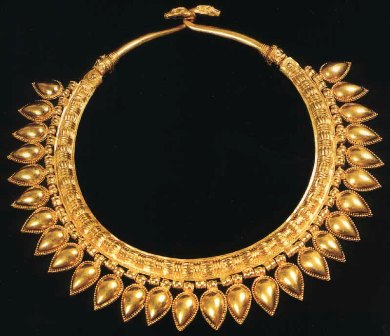
Heavy gold necklace from the palace at Nimrud
What did ‘showing off her beauty’ mean?
Just what ‘showing off her beauty’ meant is unclear. Some scholars suggest it meant that she should be naked, but this is probably wishful thinking on the part of the scholars.
It probably meant she should appear with her face uncovered, in the richly embroidered clothes and extraordinary jewels she owned: ‘in all her glory’.
Vashti, high-born, powerful and intelligent, was affronted by her husband’s command – as well she might be. Reared to be queen, she was being treated as a common prostitute.
She probably guessed it was a trap, and that whatever she did, she would be the victim.
Naturally enough she refused to present herself before her husband and his drunken guests – knowing full well there would be terrible consequences for openly defying the king.
Vashti dishonoured and disgraced
Ahasuerus was publicly humiliated. There, before all his most important subjects, he was confronted by a disobedient wife.
There was only one course of action open to him: he had to repudiate Vashti.
This meant dishonour and disgrace for her. We do not know her exact fate, but at best she would have been demoted from her lofty position and relegated to a small back room of the royal harem quarters for the rest of her life.
To save his own face, the King then decreed “that all the wives will give to their husbands honor, both to great and small…and that every man should rule in his own house.”
This only made him look more foolish, since it was an unworkable decree that could never be enforced…
Main themes of the story
- God alone has absolute power. No human being should exercise absolute power over another. Even a king’s power should be limited.
- Do not make hasty decisions. You cannot go back to undo what you have done.
Comment: Vashti’s story is the account of a deadly battle between two court factions – similar in many ways to the factional infighting in courts such as Henry VIII’s of England. At its centre is a foolish king with absolute power, a wife fighting for her survival, and a ruthless group of courtiers bent on destroying her.
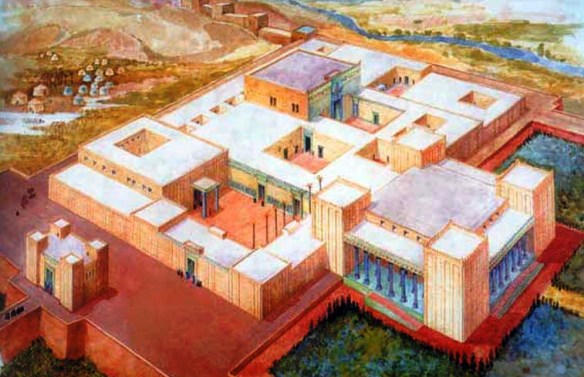
Reconsturction of the Apadana Palace in ancient Susa
The Bible text: background for the story
Book of Esther 1:1 In the days of Ahasu-e’rus, the Ahasu-e’rus who reigned from India to Ethiopia over one hundred and twenty-seven provinces, 2 in those days when King Ahasu-e’rus sat on his royal throne in Susa the capital, 3 in the third year of his reign he gave a banquet for all his princes and servants, the army chiefs of Persia and Media and the nobles and governors of the provinces being before him, 4 while he showed the riches of his royal glory and the splendor and pomp of his majesty for many days, a hundred and eighty days.
5 And when these days were completed, the king gave for all the people present in Susa the capital, both great and small, a banquet lasting for seven days, in the court of the garden of the king’s palace.
Interior decoration in the palace!
6 There were white cotton curtains and blue hangings caught up with cords of fine linen and purple to silver rings and marble pillars, and also couches of gold and silver on a mosaic pavement of porphyry, marble, mother-of-pearl and precious stones.
Catering in the Bible!
7 Drinks were served in golden goblets, goblets of different kinds, and the royal wine was lavished according to the bounty of the king. 8 And drinking was according to the law, no one was compelled; for the king had given orders to all the officials of his palace to do as every man desired.
Vashti disobeys
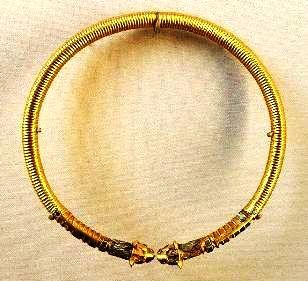
Gold torque found among the ruins of ancient Susa
9 Queen Vashti also gave a banquet for the women in the palace which belonged to King Ahasu-e’rus. 10 On the seventh day, when the heart of the king was merry with wine, he commanded Mehu’man, Biztha, Harbo’na, Bigtha and Abag’tha, Zethar and Carkas, the seven eunuchs who served King Ahasu-e’rus as chamberlains, 11 to bring Queen Vashti before the king with her royal crown, in order to show the peoples and the princes her beauty; for she was fair to behold.
12 But Queen Vashti refused to come at the king’s command conveyed by the eunuchs. At this the king was enraged, and his anger burned within him.
The plot to disgrace Vashti
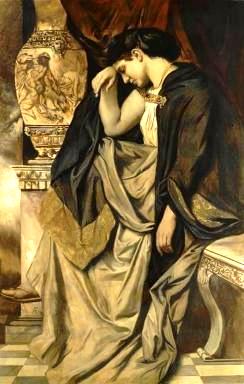
13 Then the king said to the wise men who knew the times–for this was the king’s procedure toward all who were versed in law and judgment, 14 the men next to him being Carshe’na, Shethar, Adma’tha, Tarshish, Meres, Marse’na, and Memu’can, the seven princes of Persia and Media, who saw the king’s face, and sat first in the kingdom–:
15 “According to the law, what is to be done to Queen Vashti, because she has not performed the command of King Ahasu-e’rus conveyed by the eunuchs?”
16 Then Memu’can said in presence of the king and the princes, “Not only to the king has Queen Vashti done wrong, but also to all the princes and all the peoples who are in all the provinces of King Ahasu-e’rus.
17 For this deed of the queen will be made known to all women, causing them to look with contempt upon their husbands, since they will say, ‘King Ahasu-e’rus commanded Queen Vashti to be brought before him, and she did not come.’ 18 This very day the ladies of Persia and Media who have heard of the queen’s behavior will be telling it to all the king’s princes, and there will be contempt and wrath in plenty.
Vashti is punished
19 If it please the king, let a royal order go forth from him, and let it be written among the laws of the Persians and the Medes so that it may not be altered, that Vashti is to come no more before King Ahasu-e’rus; and let the king give her royal position to another who is better than she.
20 So when the decree made by the king is proclaimed throughout all his kingdom, vast as it is, all women will give honor to their husbands, high and low.”
21 This advice pleased the king and the princes, and the king did as Memu’can proposed; 22 he sent letters to all the royal provinces, to every province in its own script and to every people in its own language, that every man be lord in his own house and speak according to the language of his people.
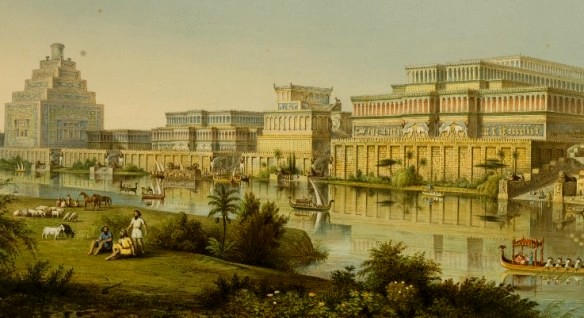
The palaces of Nimrud, as they would have appeared in ancient times
Search Box
![]()
Read about more of
the fascinating women of the Bible
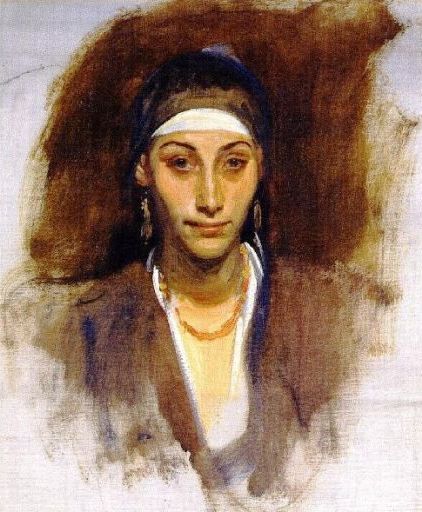
John Singer Sargant’s ‘Woman with Earrings’
Search Box
![]()
Bible Study Resource for Women in the Bible
Vashti, wife of Ahasuerus the king of Persia
Bible Study Resource
© Copyright 2006
Elizabeth Fletcher


